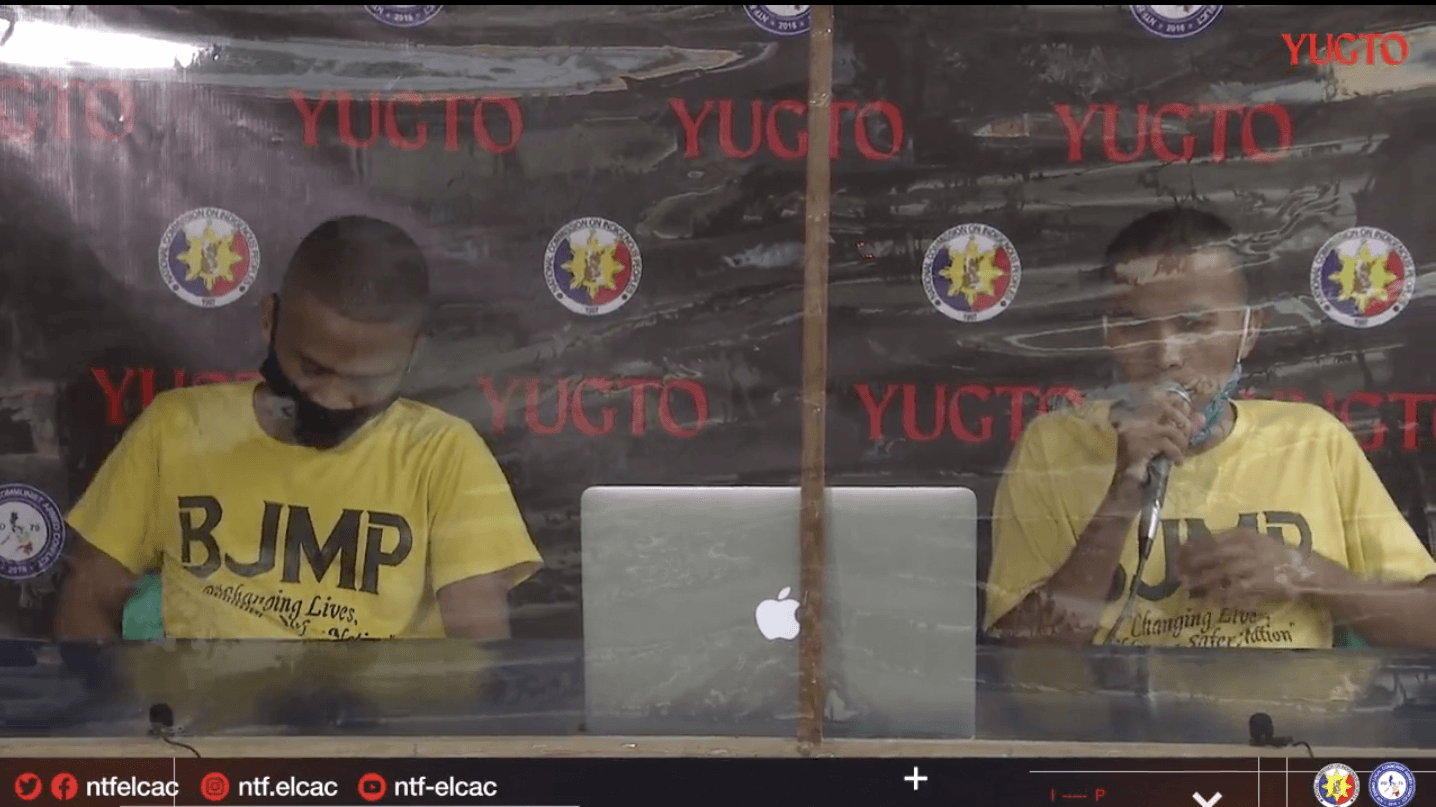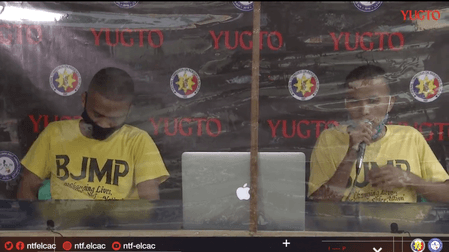SUMMARY
This is AI generated summarization, which may have errors. For context, always refer to the full article.

The Olongapo Regional Trial Court (RTC) has junked the first known anti-terror law case against Aetas Japer Gurung and Junior Ramos, ruling that it was a case of mistaken identities.
“After a careful examination of the records, the Court holds that the prosecution failed to discharge the burden of proving the identities of the accused as perpetrators of the crime of violation of Section 4 of Republic Act No. 11479. Thus, the case for violation of this law against the accused must be dismissed,” said the decision by Olongapo RTC Branch 97 Judge Melani Fay Tadili dated July 15, released to media Monday, July 19.
The lower court did not tackle the constitutionality of the highly-contested law, which is now up to the decision of the Supreme Court a year after the filing of 37 petitions against the law and nine sessions of oral arguments.
Judge Tadili also ordered the release of Gurung and Ramos from the Olongapo City Jail, where they have been detained since August of last year. They were arrested during an encounter with the 73rd Division Reconaissance Company of the 7th Infantry Division at their ancestral mountainous village in San Marcelino, Zambales.
The government accused them of being members of the armed New Peoples’ Army (NPA), who shot at the soldiers, killing one, and in effect spread a message of fear. Provincial prosecutors charged them under Section 4 or committing terrorism under the law.
The court said the soldiers who stood as witnesses made “blatant inconsistencies,” saying on the stand that they were shown photos of Gurung and Ramos before the operation, when in their sworn statements “they did not say they were shown such pictures.”
The court also pointed out that the soldier witnesses said in their judicial affidavit that they saw Gurung and Ramos during the gunfight, but did not say so in their sworn statements.
“The inconsistencies of the soldiers on the presence of the accused at the crime scene and the profiling of the accused, and the presence of the danger signals in their identification of the accused cast doubt on their testimonies that accused were the perpetrators of the crime,” said the court.
The Aetas had claimed in their counter-affidavit that they even welcomed the soldiers into their home and cooked for them, until they were told they were being arrested as members of the NPA.
“The soldiers did not know the accused, both are Aetas who share with other Aetas common physical characteristics of dark skin tones, short statures, and curly hair. They saw them for the first time on the day the gunfight happened,” the court said.
“Assuming that soldiers were shown pictures of the accused during the briefing, they could not have memorized their faces in such a short span of time,” the court said.
“The soldiers’ first encounter with the supposed criminals – more or less 10 armed persons, some of whom were Aetas like the accused – happened very briefly during the life-threatening and stressful circumstances where they exchanged shots with the use of high-powered firearms in an NPA camp,” said the court.
The court said that “under this situation, the soldiers’ focus and attention could not have been total on even one of these 10 criminals.”
Gurung and Ramos were initially represented by the progressive National Union of Peoples’ Lawyers (NUPL), which filed a petition to make them join the Supreme Court case. This petition for intervention has been junked.
The government, through the combined forces of the Office of the Solicitor General, National Commission on Indigenous Peoples (NCIP), and National Task Force to End Local Communist Armed Conflict (NTF-ELCAC), convinced them to drop NUPL and be represented instead by the Public Attorneys’ Office (PAO).
Wrongful arrest, who’s accountable?
The court also said that because Gurung and Ramos were not positively identified as perpetrators of the crime, “their warrantless arrest was unlawful.”
In a joint statement by the National Commission on Indigenous Peoples (NCIP) and National Task Force to End Local Communist Armed Conflict (NTF-ELCAC), the government said “the decision has clearly shown that our justice system works.”
But NCIP director and NTF-ELCAC legal spokesperson Marlon Bosantog told Rappler they have “no plan at this point” to pursue counter charges against the military.
The anti-terror law removed the old clause that the military shall pay P500,000 per day of wrongful detention.
One of the criticisms of the anti-terror law is that there is a small likelihood that those who wrongfully arrest, detain, and prosecute suspects will be held accountable.
“Our justice system is inhospitable to the battle of impunity especially when you’re running after law enforcers. It’s not easy,” said National Union of Peoples’ Lawyers (NUPL) chairperson Neri Colmenares in Filipino during a forum on Saturday, July 17.
“We will go back and engage Japer and Junior how they want to move forward. What I understand is that they will help in the peace initiative of the government to remove violence in their ancestral lands,” said Bosantog.

– Rappler.com
Add a comment
How does this make you feel?










There are no comments yet. Add your comment to start the conversation.